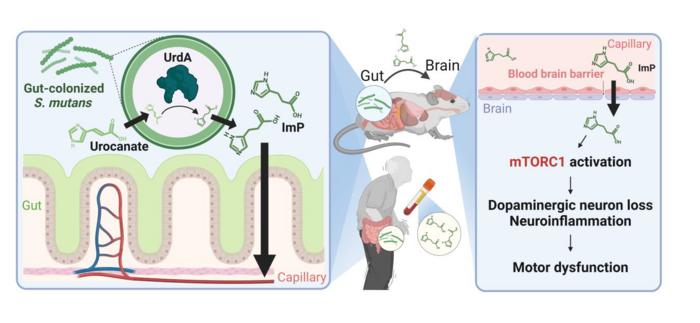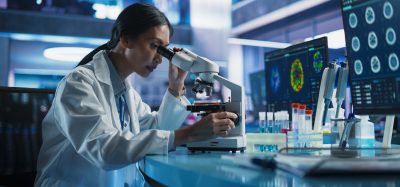Oral bacteria in gut could play role in Parkinson’s disease development
Posted: 26 September 2025 | Drug Target Review | No comments yet
Korean researchers have discovered that oral bacteria in the gut may contribute to Parkinson’s disease – highlighting a potential new target for treatment.


A new study from South Korea has demonstrated that oral bacteria, once colonised in the gut, can affect brain neurons and may play a role in triggering Parkinson’s disease –highlighting the importance of good oral hygiene.
Researchers identify gut-brain link
The joint research team, led by Professor Ara Koh and Hyunji Park of POSTECH’s Department of Life Sciences, together with Professor Yunjong Lee and Jiwon Cheon of Sungkyunkwan University School of Medicine, collaborated with Professor Han-Joon Kim of Seoul National University College of Medicine. Their findings, published in Nature Communications, detail the mechanism by which metabolites produced by oral bacteria in the gut may initiate Parkinson’s disease.
Parkinson’s disease and the gut microbiome
Parkinson’s disease is a major neurological disorder characterised by tremors, stiffness and slowed movement. Affecting 1–2 percent of the global population over the age of 65 – it is one of the most common age-related brain diseases. Previous research suggested that the gut microbiota of individuals with Parkinson’s differs from that of healthy individuals, but the specific microbes and metabolites responsible remained in question.
Biomarkers aren’t just supporting drug discovery – they’re driving it
FREE market report
From smarter trials to faster insights, this report unpacks the science, strategy and real-world impact behind the next generation of precision therapies.
What you’ll unlock:
- How biomarkers are guiding dose selection and early efficacy decisions in complex trials
- Why multi-omics, liquid biopsy and digital tools are redefining the discovery process
- What makes lab data regulatory-ready and why alignment matters from day one
Explore how biomarkers are shaping early drug development
Access the full report – it’s free!
The researchers discovered an increased abundance of Streptococcus mutans – a well-known oral bacteria responsible for dental caries – in the gut microbiome of Parkinson’s patients. More importantly, S. mutans produces the enzyme urocanate reductase (UrdA) and its metabolite imidazole propionate (ImP), both found at elevated levels in the gut and blood of patients. ImP appears capable of entering systemic circulation, reaching the brain and contributing to the loss of dopaminergic neurons.


Diagram of Metabolite Accumulation in the Brain and Parkinson’s disease Induction Following Oral Bacteria Colonization in the Gut. Credit: POSTECH
Mouse models reveal Parkinson’s symptoms
Using mouse models, the team introduced S. mutans into the gut or engineered E. coli to express UrdA. The mice developed elevated ImP levels in blood and brain tissue, alongside loss of dopaminergic neurons, heightened neuroinflammation, impaired motor function and increased aggregation of alpha-synuclein – a protein central to disease progression.
Further experiments showed that these effects rely on the activation of the signalling protein complex mTORC1. Treating mice with an mTORC1 inhibitor significantly reduced neuroinflammation, neuronal loss, alpha-synuclein aggregation and motor dysfunction. This suggested that targeting oral–gut microbiota and their metabolites may offer new therapeutic strategies for Parkinson’s disease.
Gut microbiota as a therapeutic target
The study demonstrates the existence of complex connection between oral health, gut microbiota and neurodegenerative disease. By identifying the specific bacteria and metabolites that may trigger Parkinson’s symptoms, the research could lead to potential therapies targeting the gut–brain axis.
“Our study provides a mechanistic understanding of how oral microbes in the gut can influence the brain and contribute to the development of Parkinson’s disease,” said Professor Ara Koh. “It highlights the potential of targeting the gut microbiota as a therapeutic strategy, offering a new direction for Parkinson’s treatment.”
Related topics
Animal Models, Central Nervous System (CNS), Microbiome, Molecular Biology, Neurons, Neurosciences, Translational Science
Related conditions
Parkinson's disease
Related organisations
POSTECH’s Department of Life Sciences, Seoul National University College of Medicine, Sungkyunkwan University School of Medicine
Related people
Hyunji Park (POSTECH’s Department of Life Sciences), Jiwon Cheon (Sungkyunkwan University School of Medicine), Professor Ara Koh (POSTECH’s Department of Life Sciences), Professor Han-Joon Kim (Seoul National University College of Medicine), Professor Yunjong Lee (Sungkyunkwan University School of Medicine)








